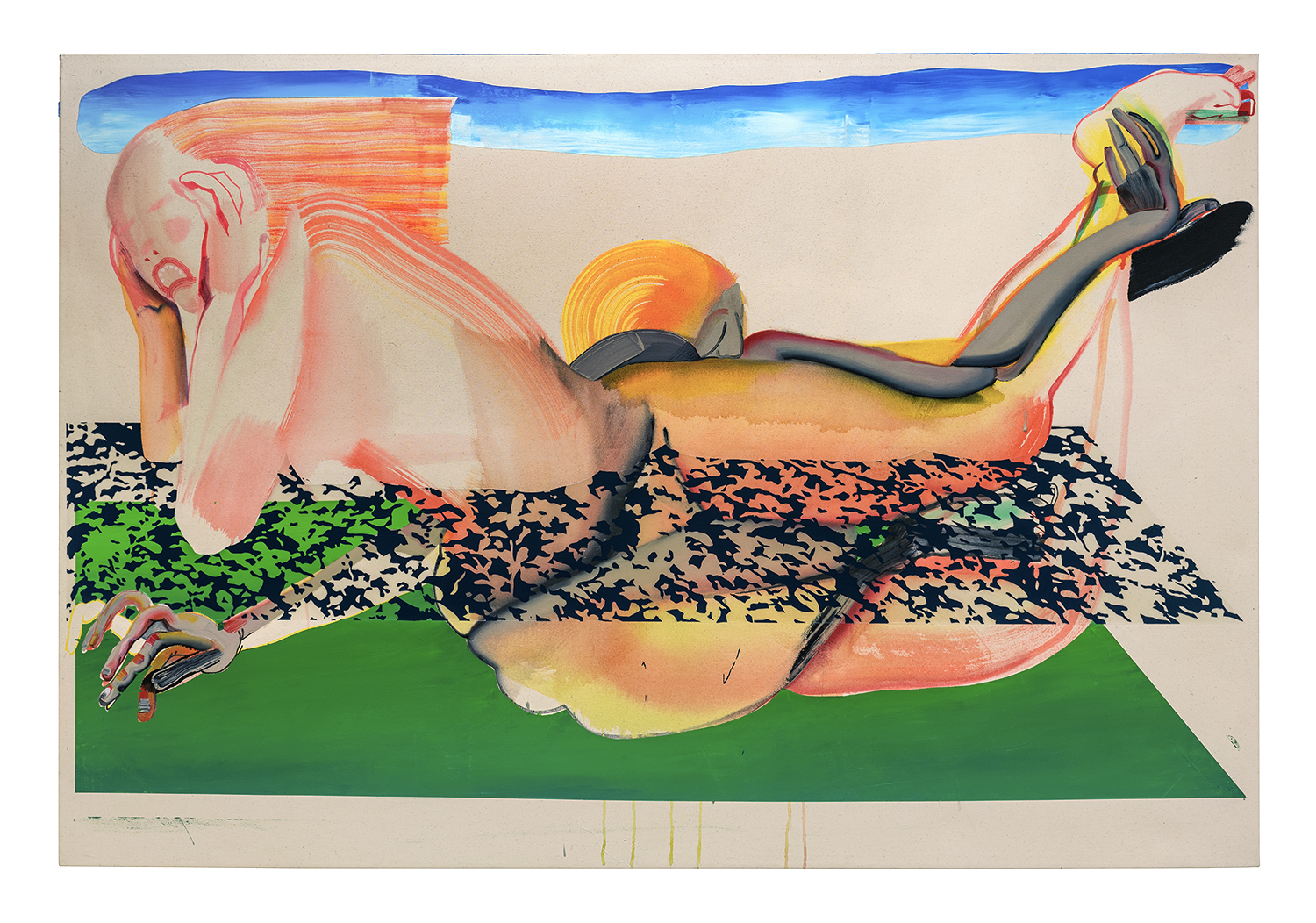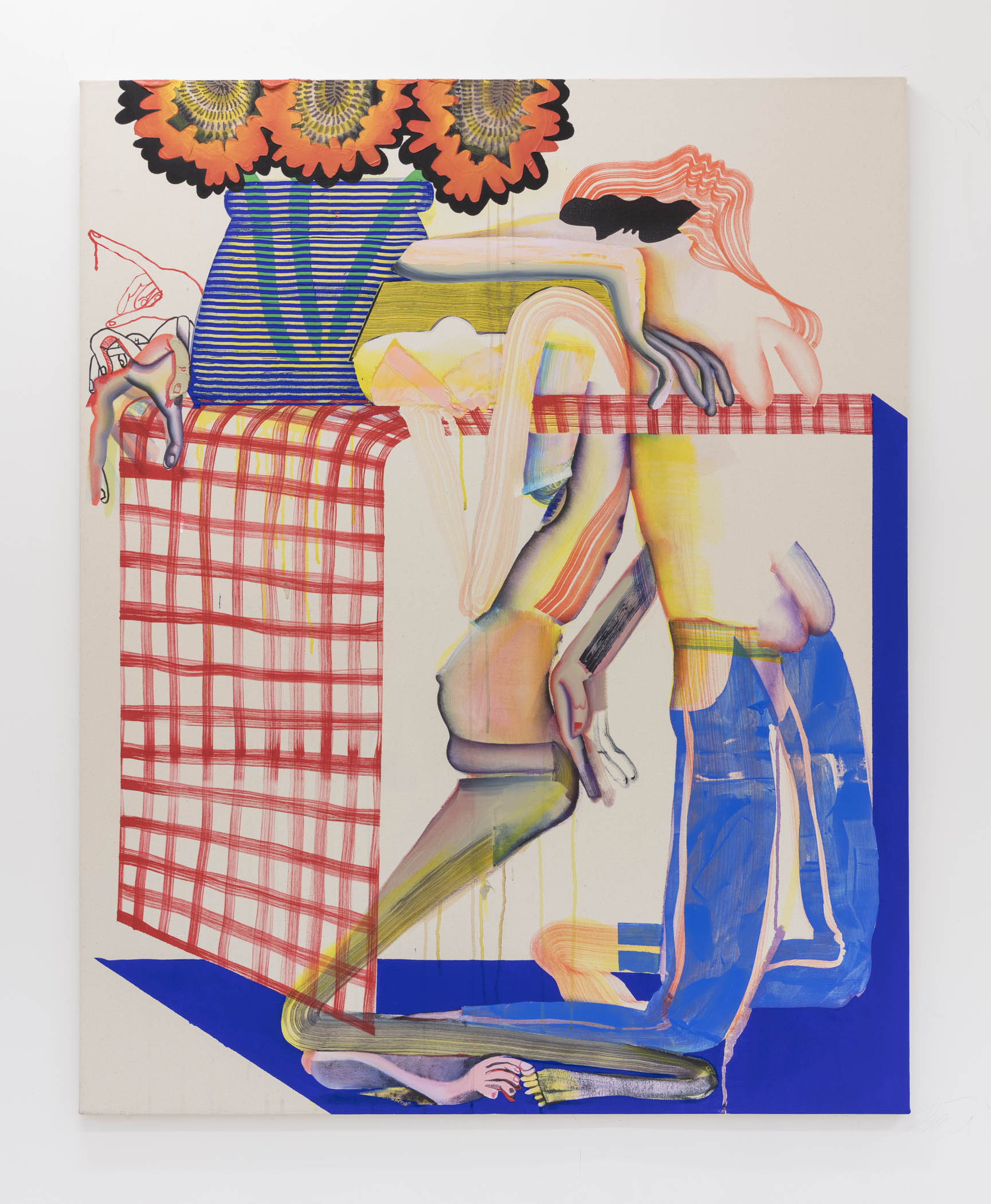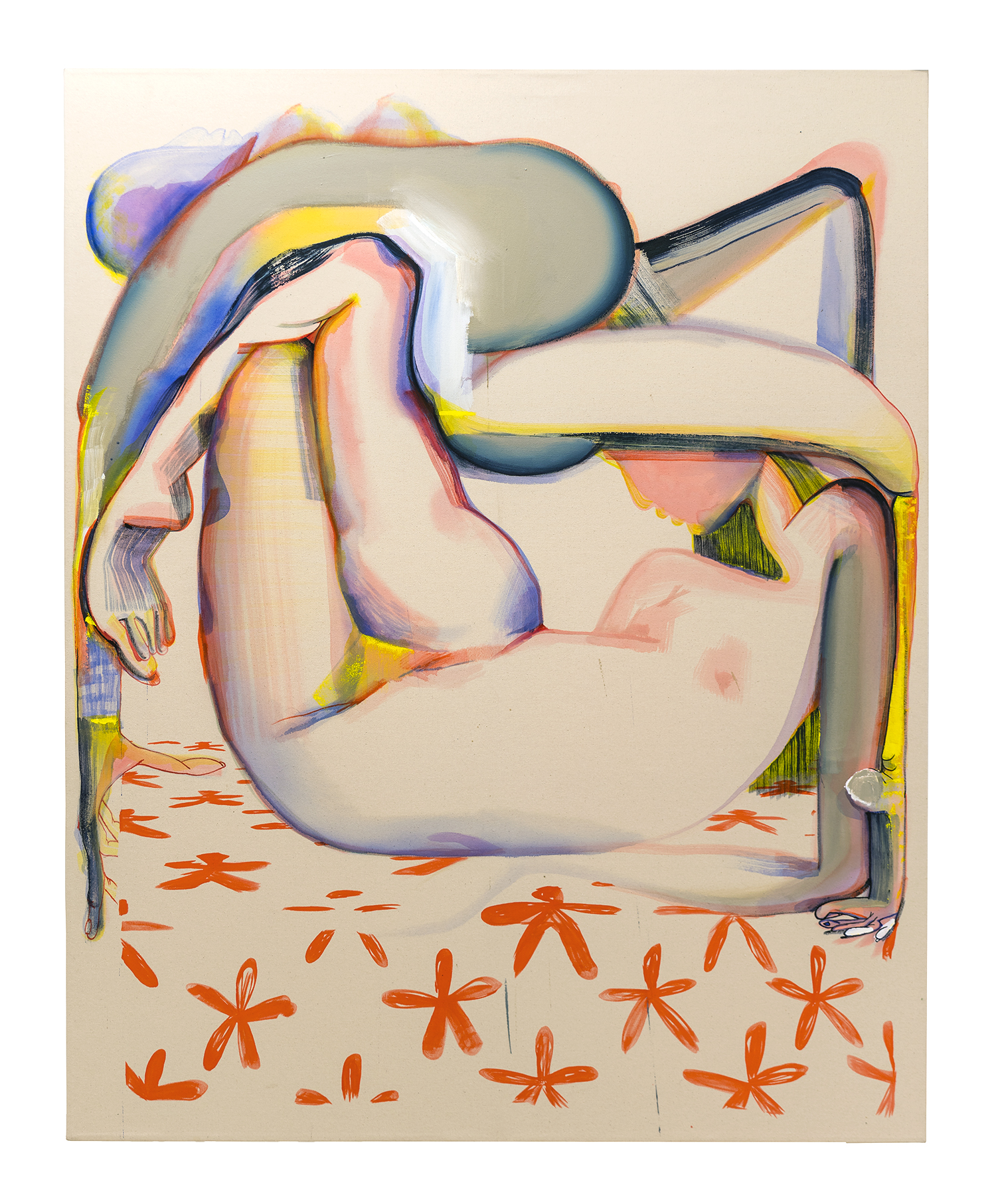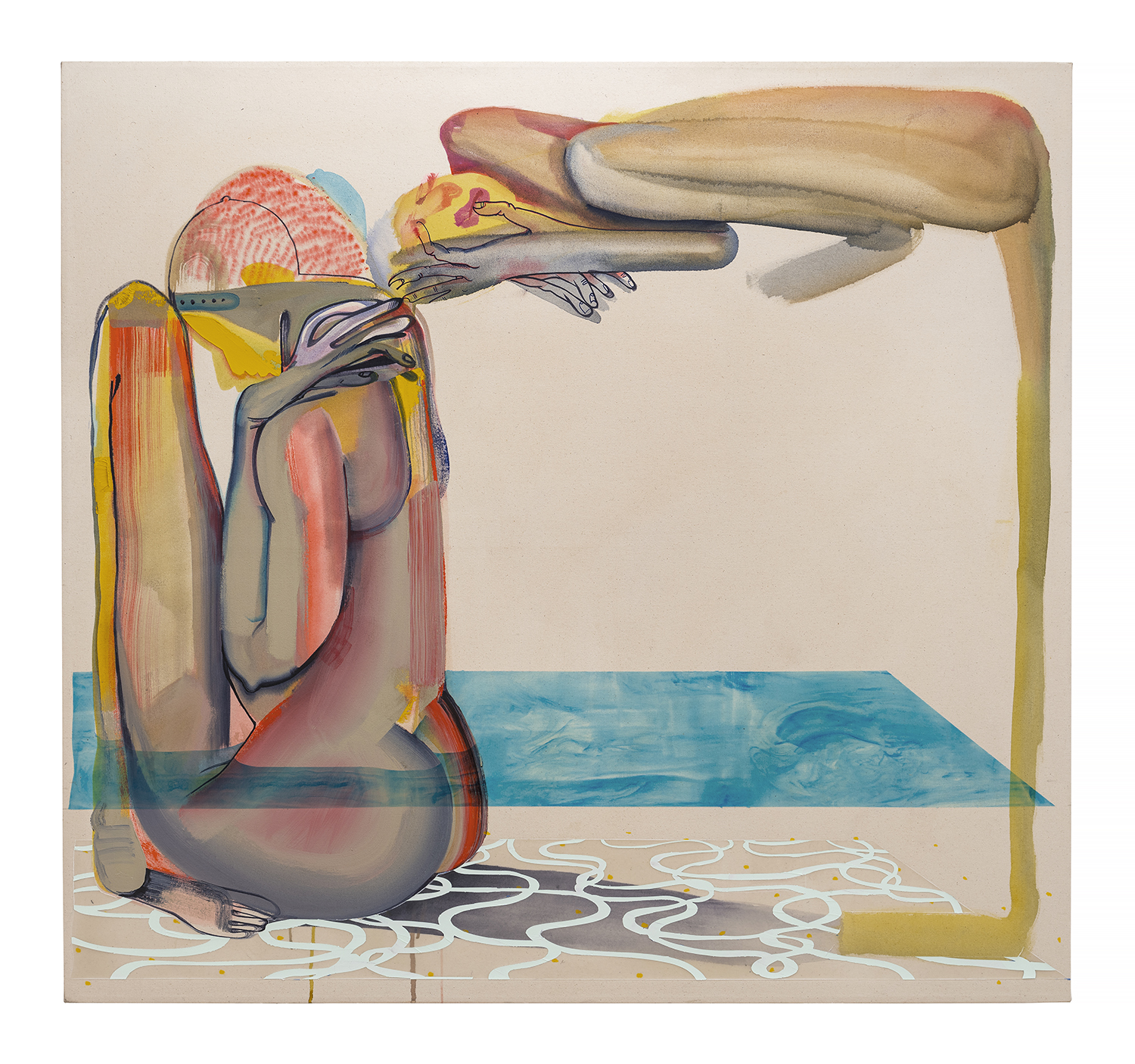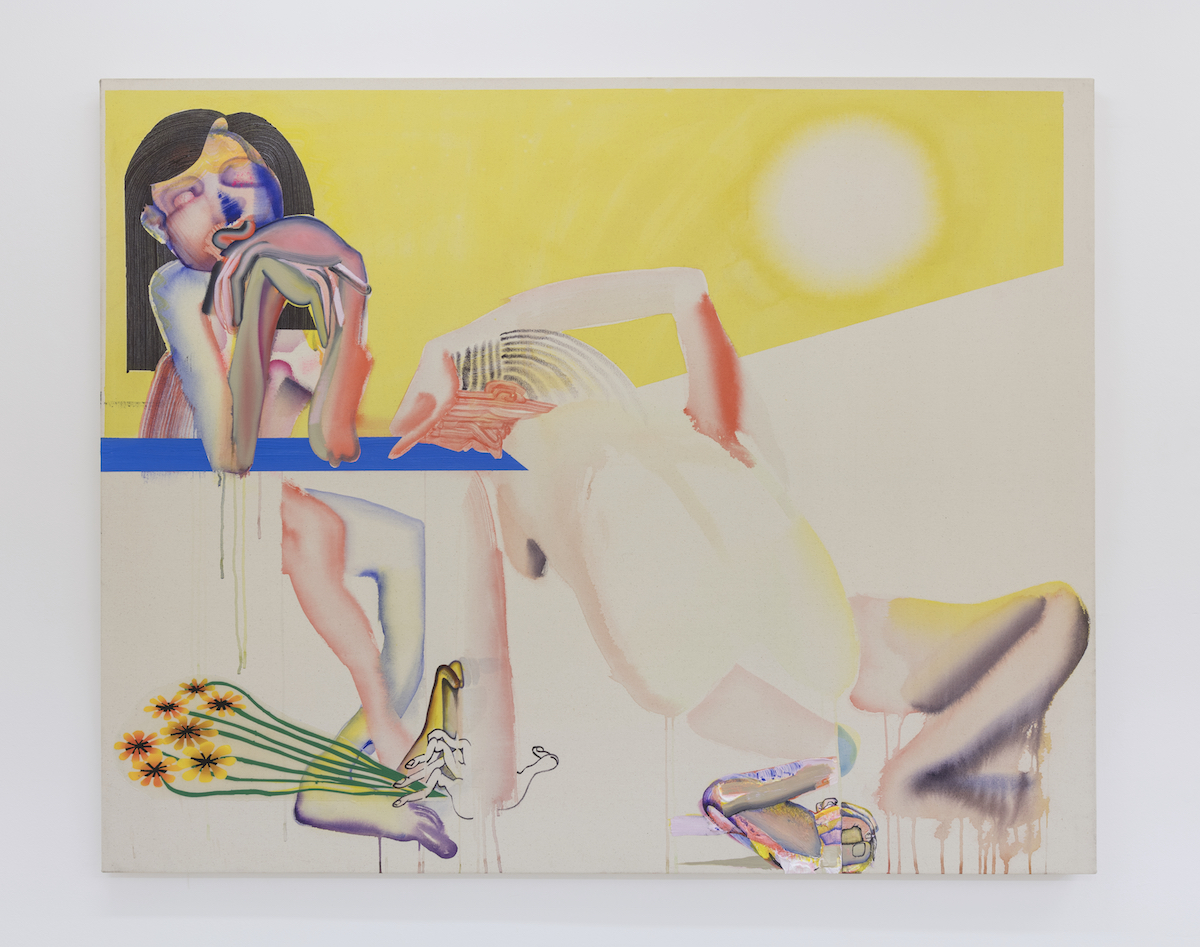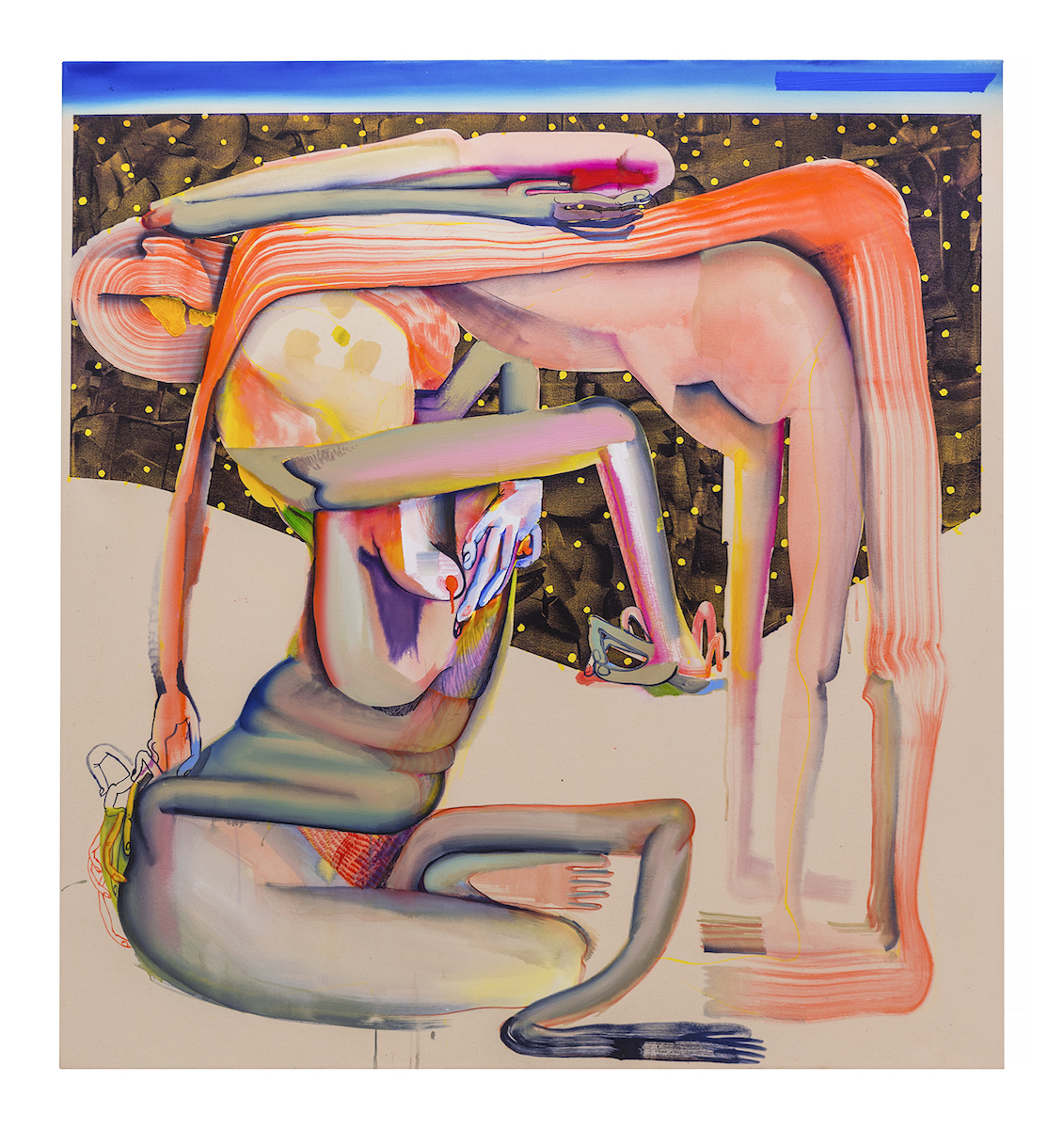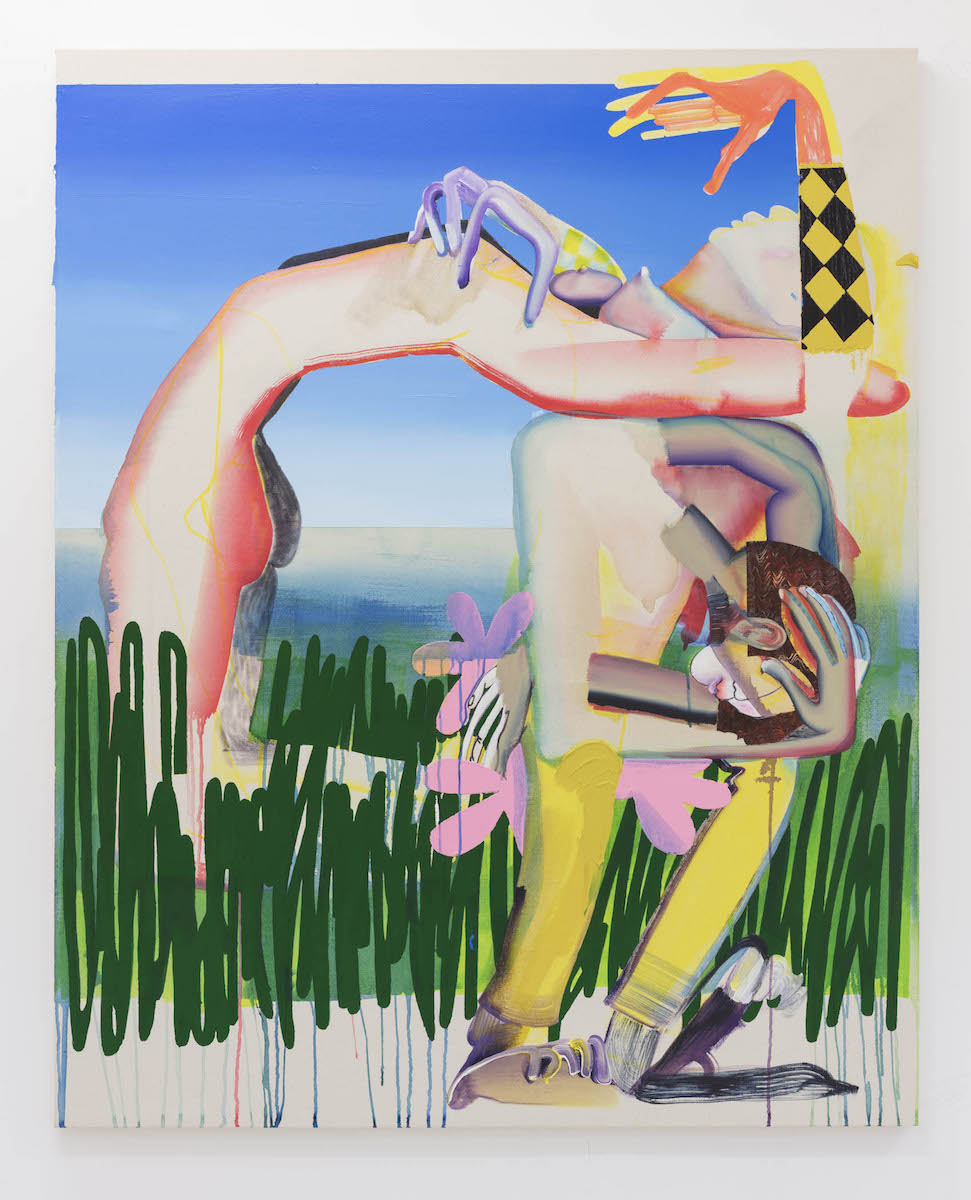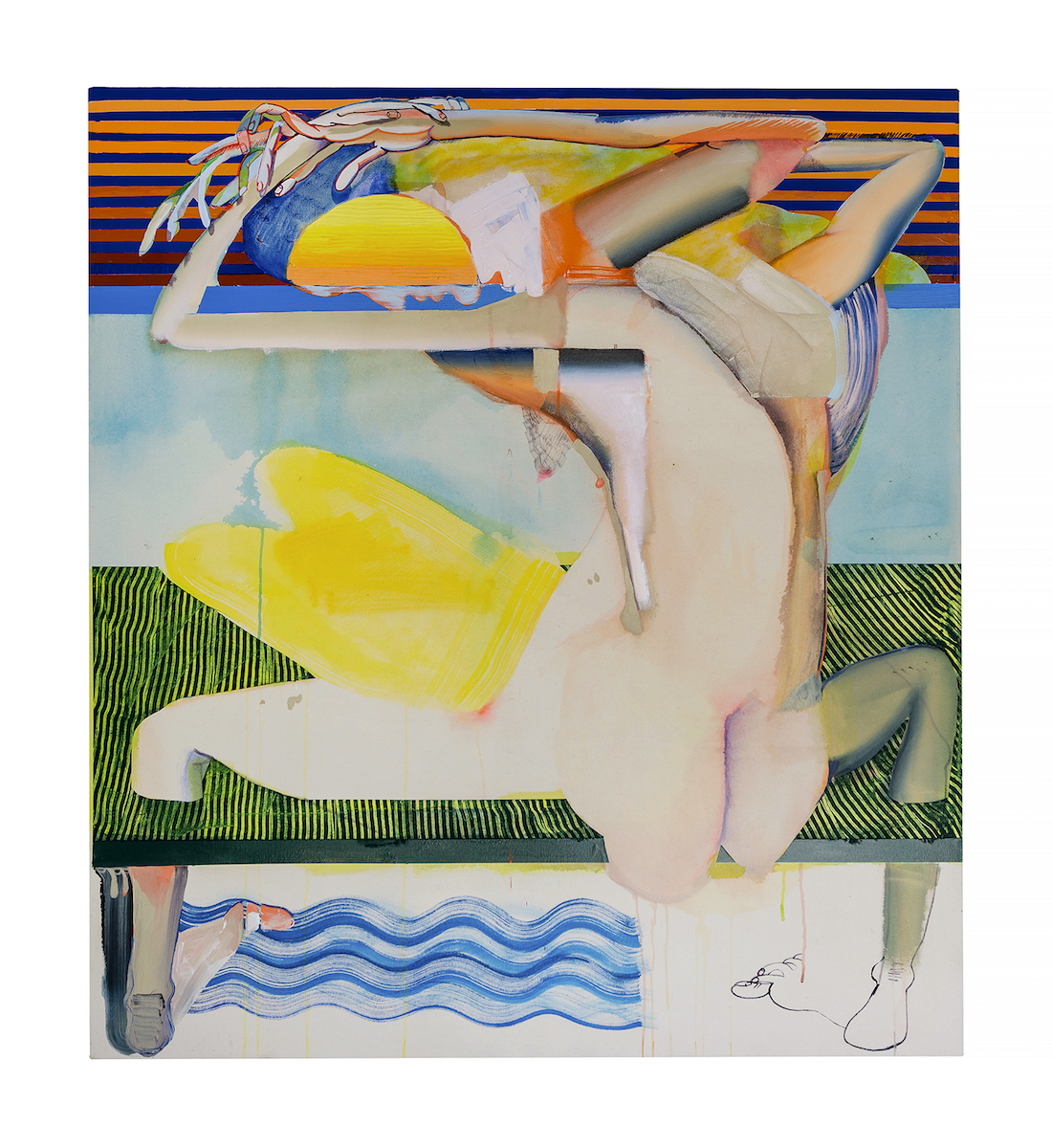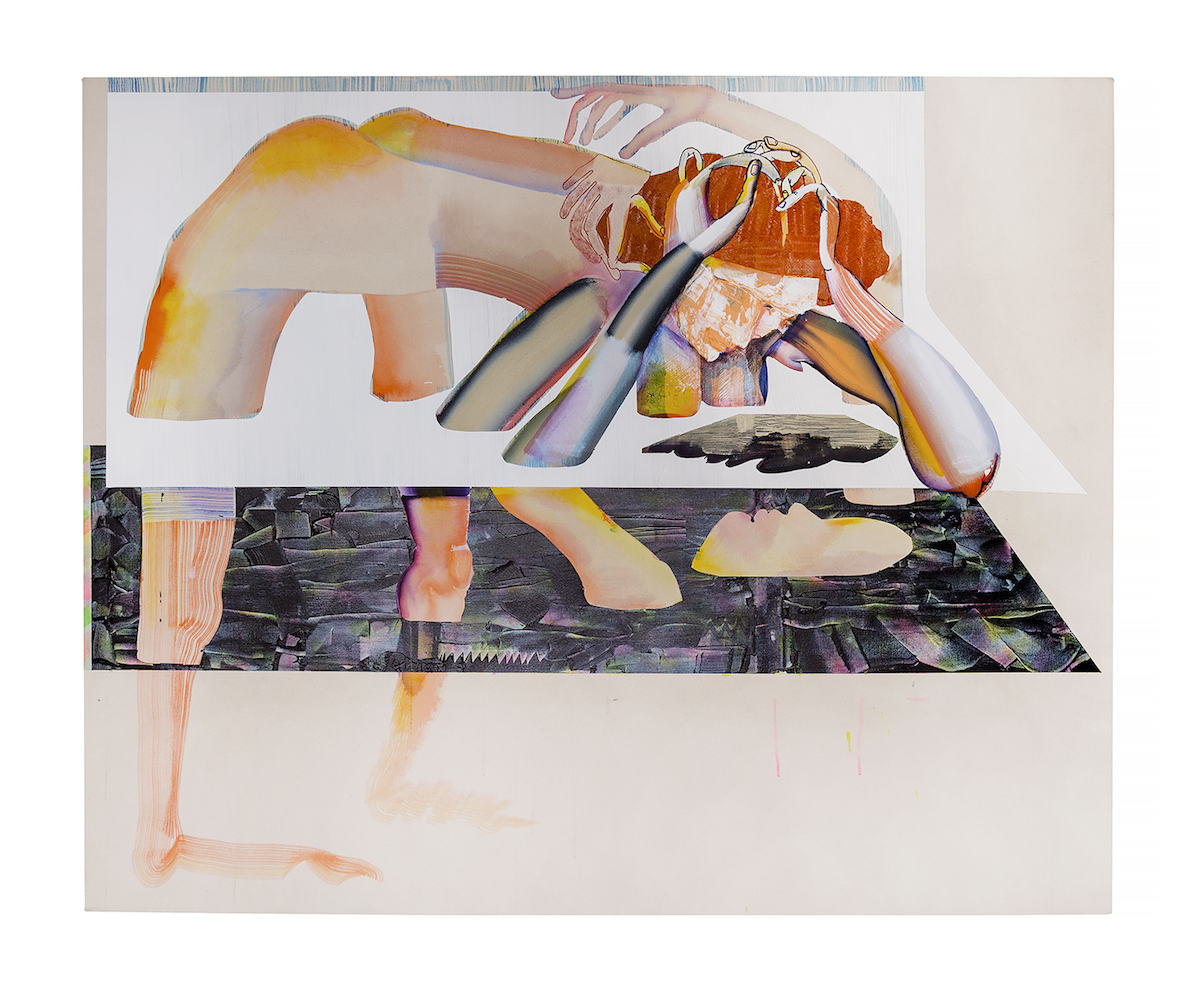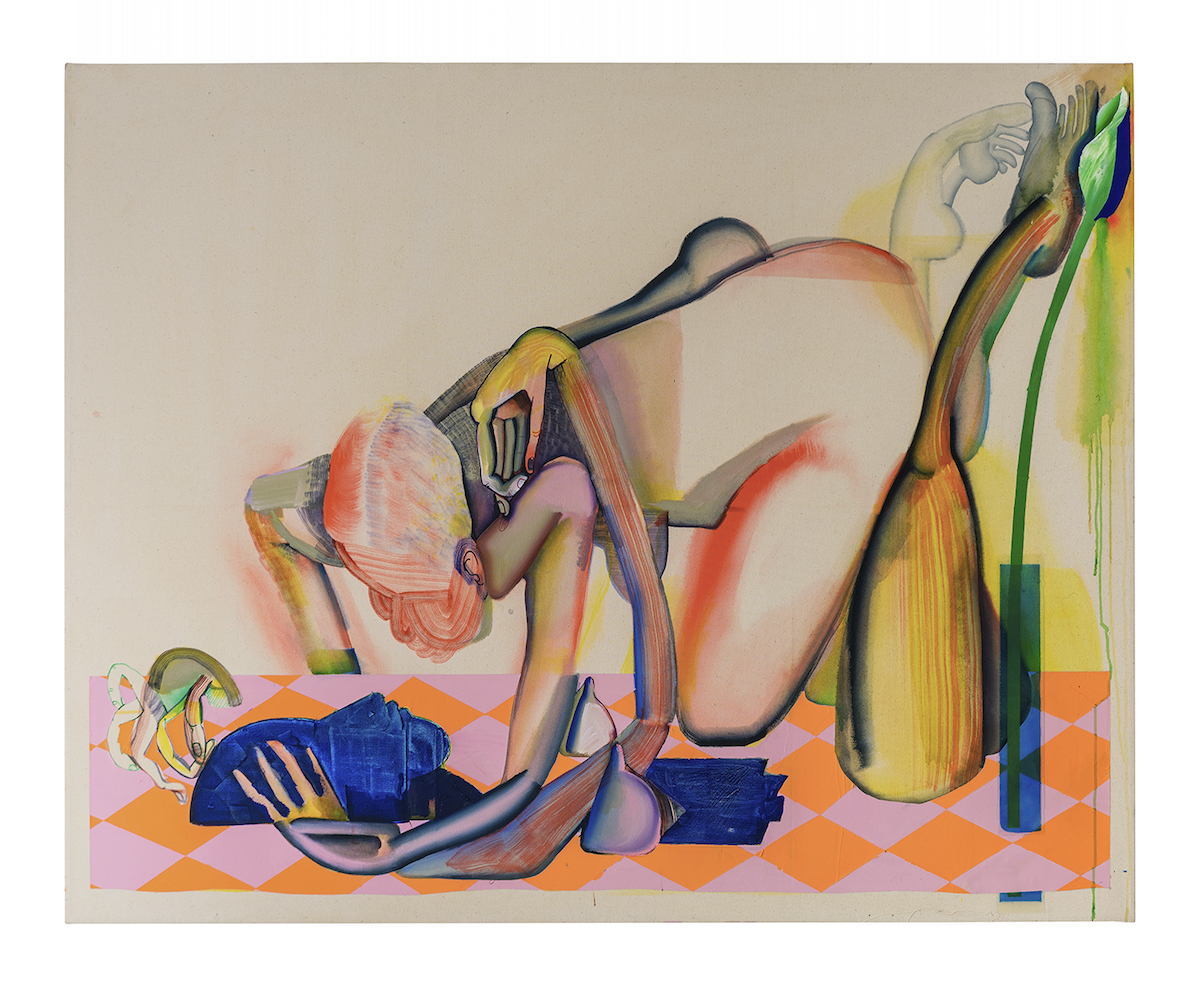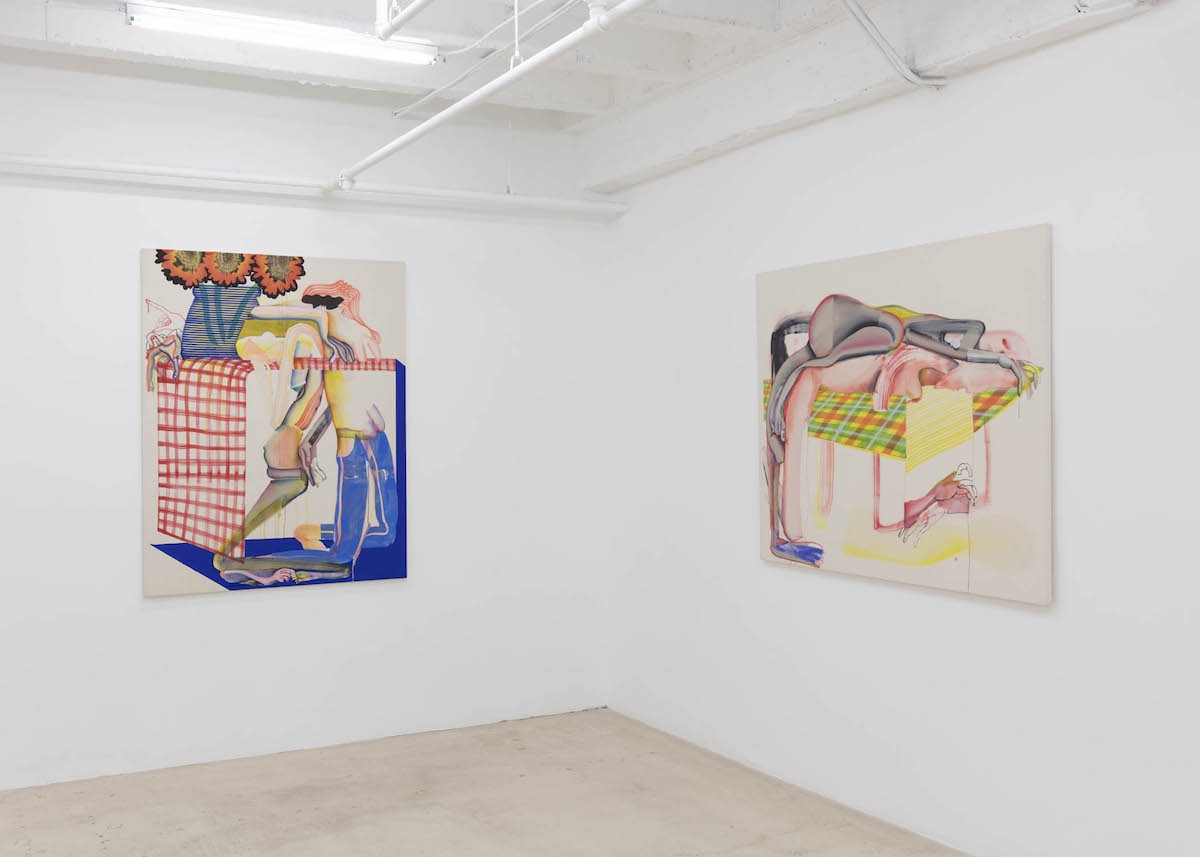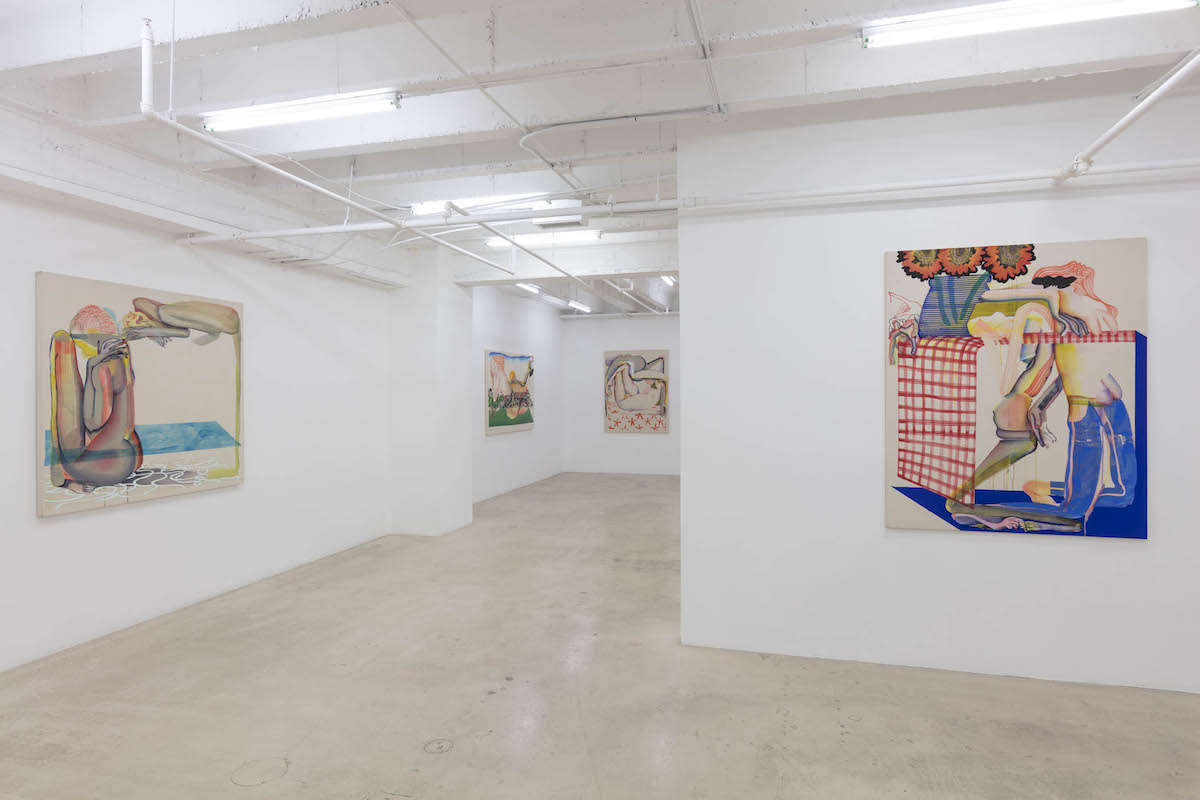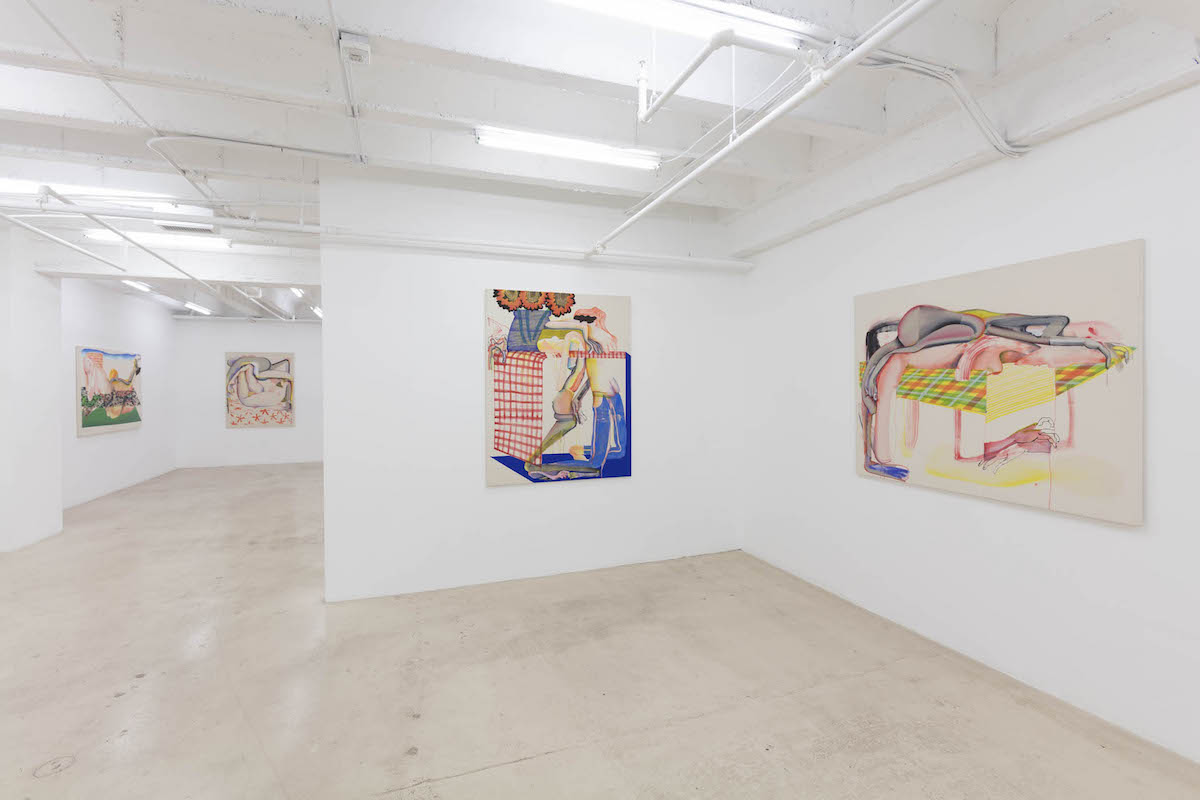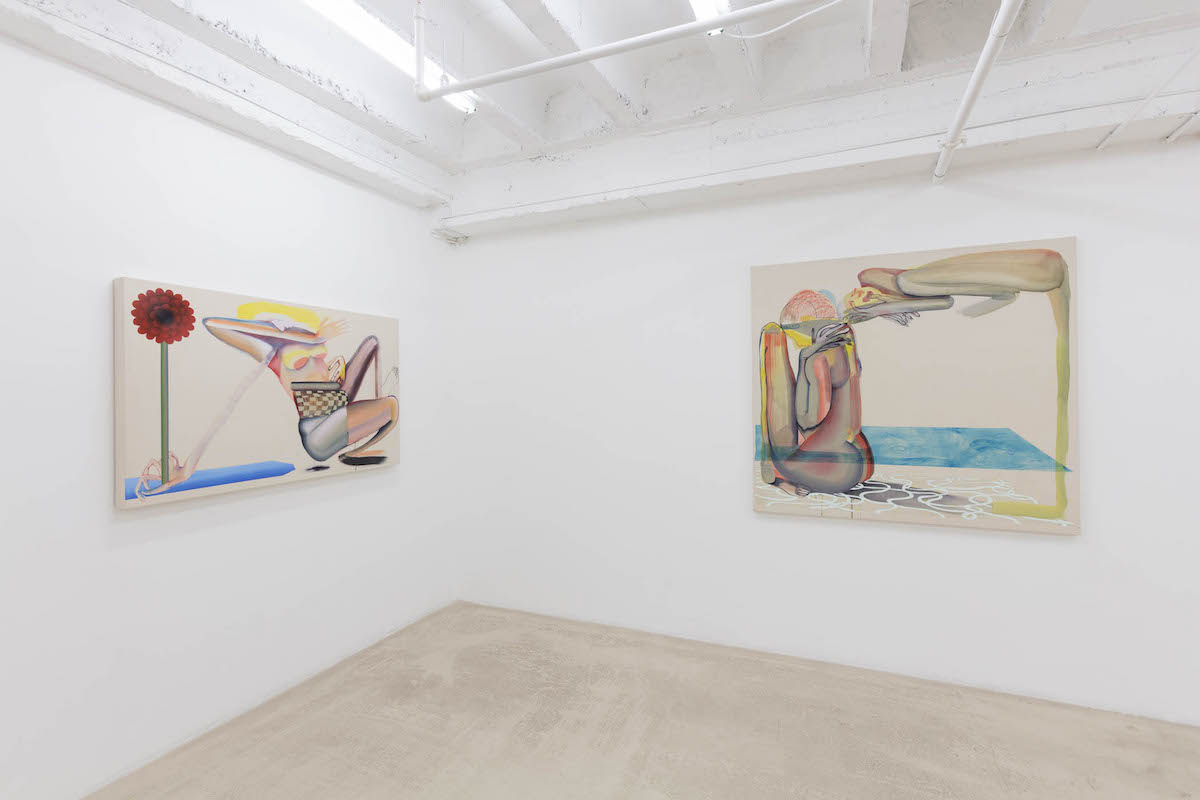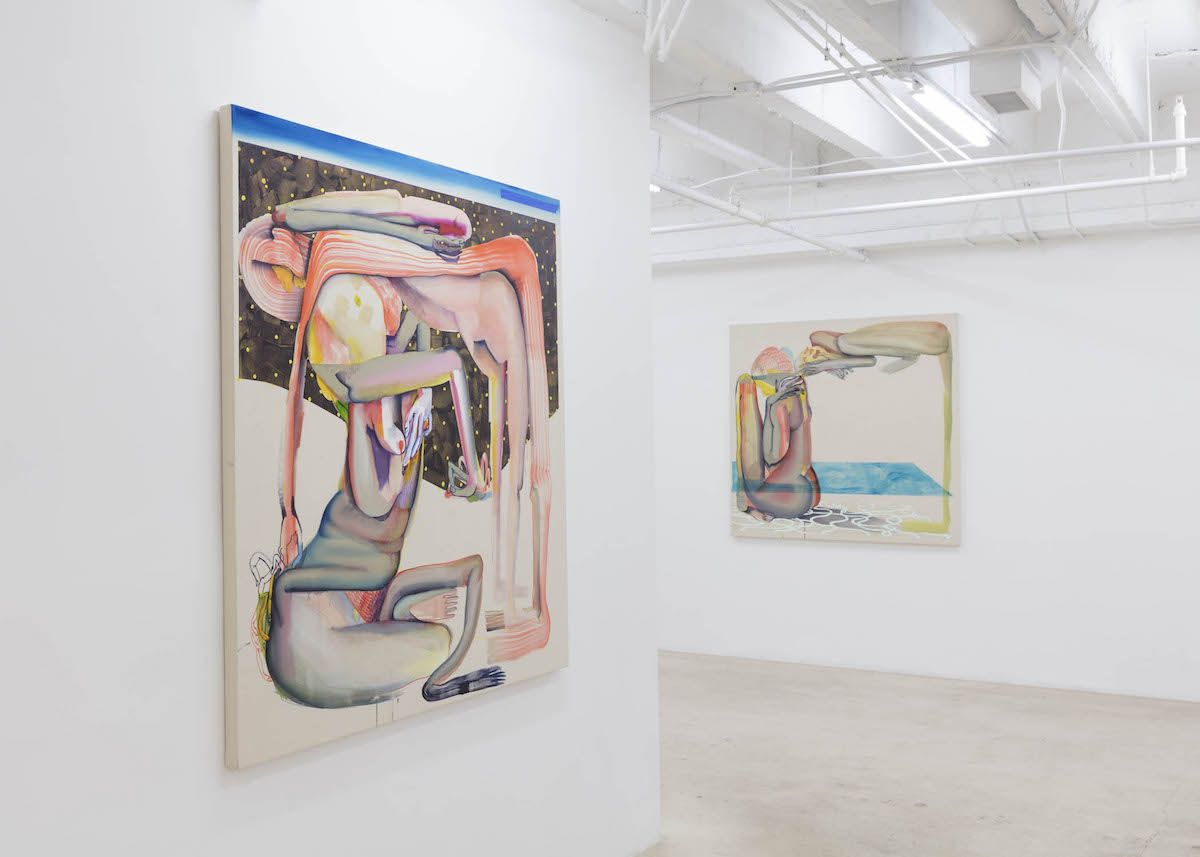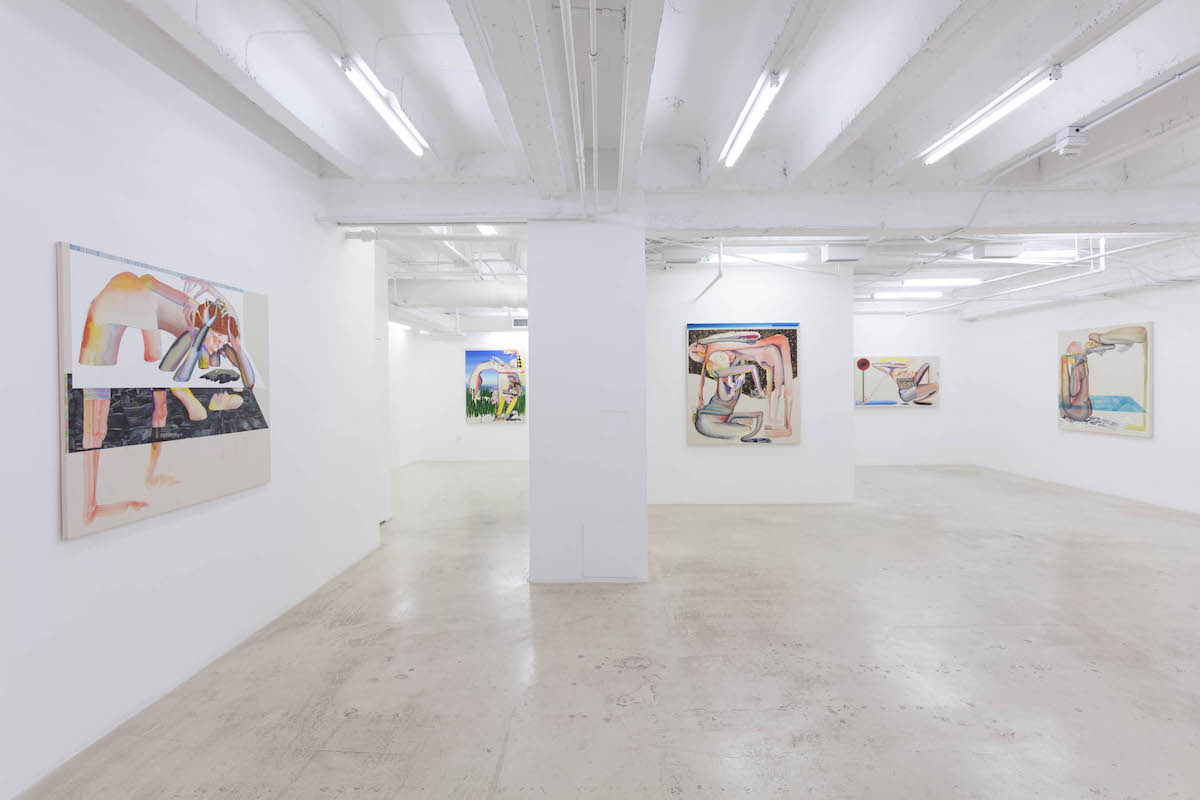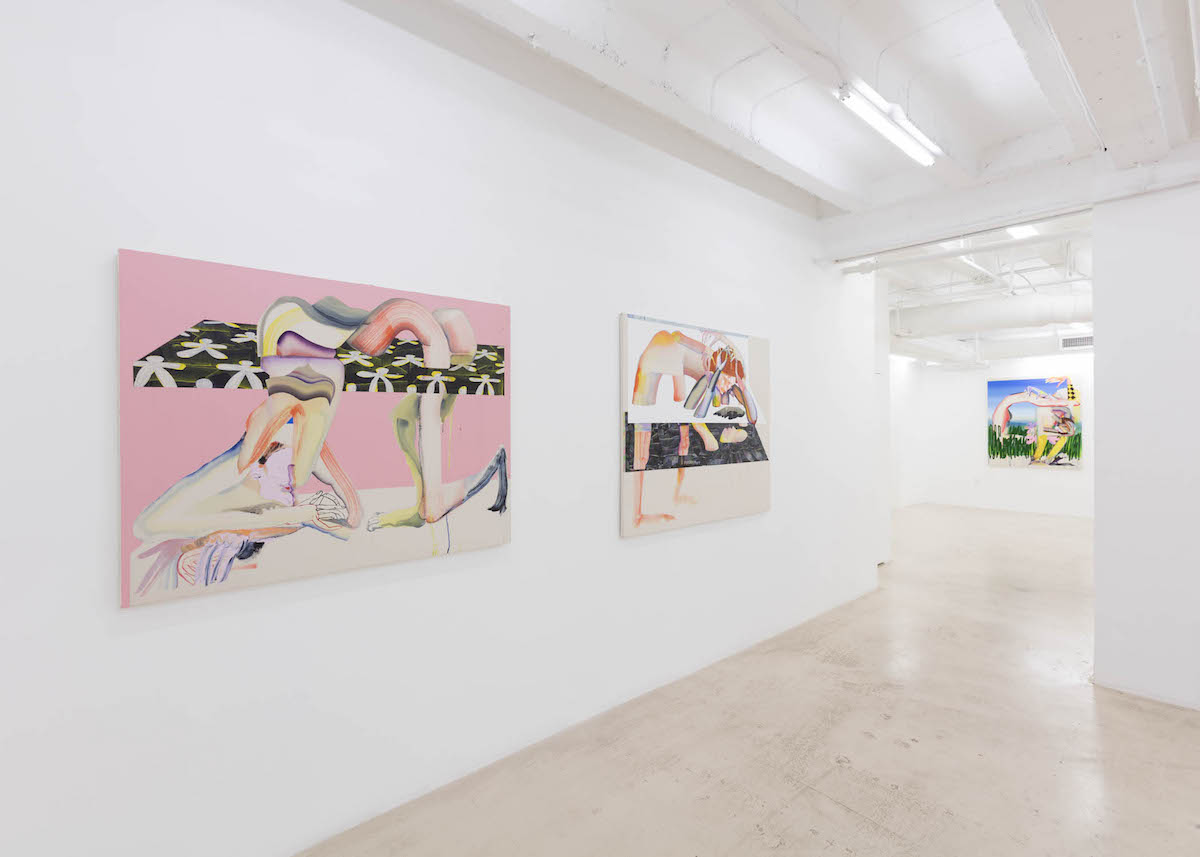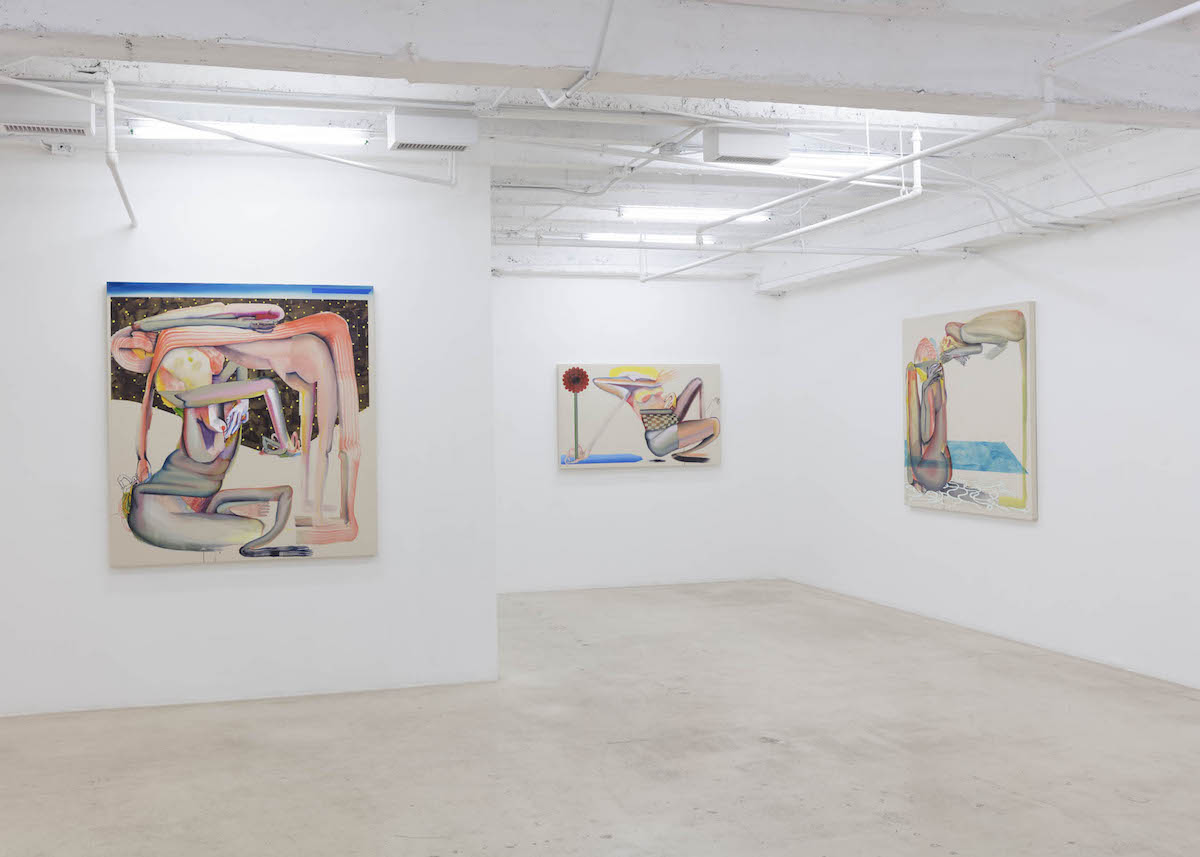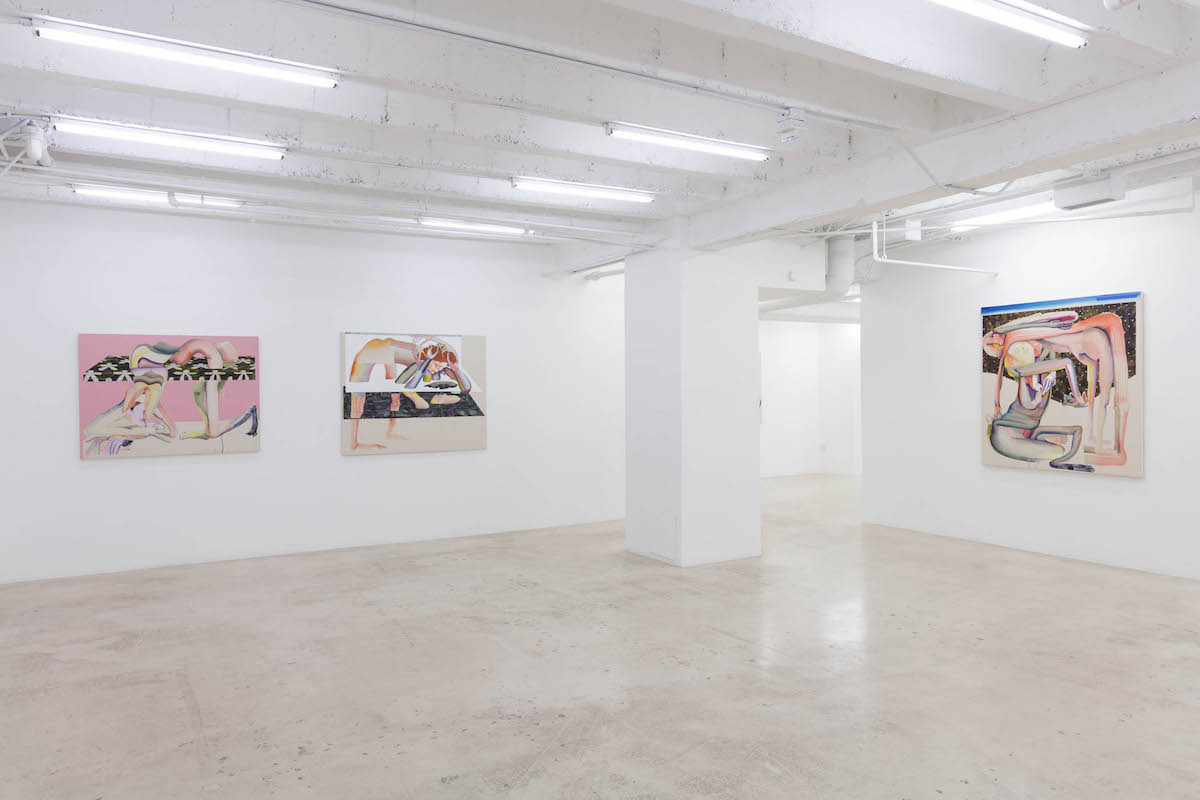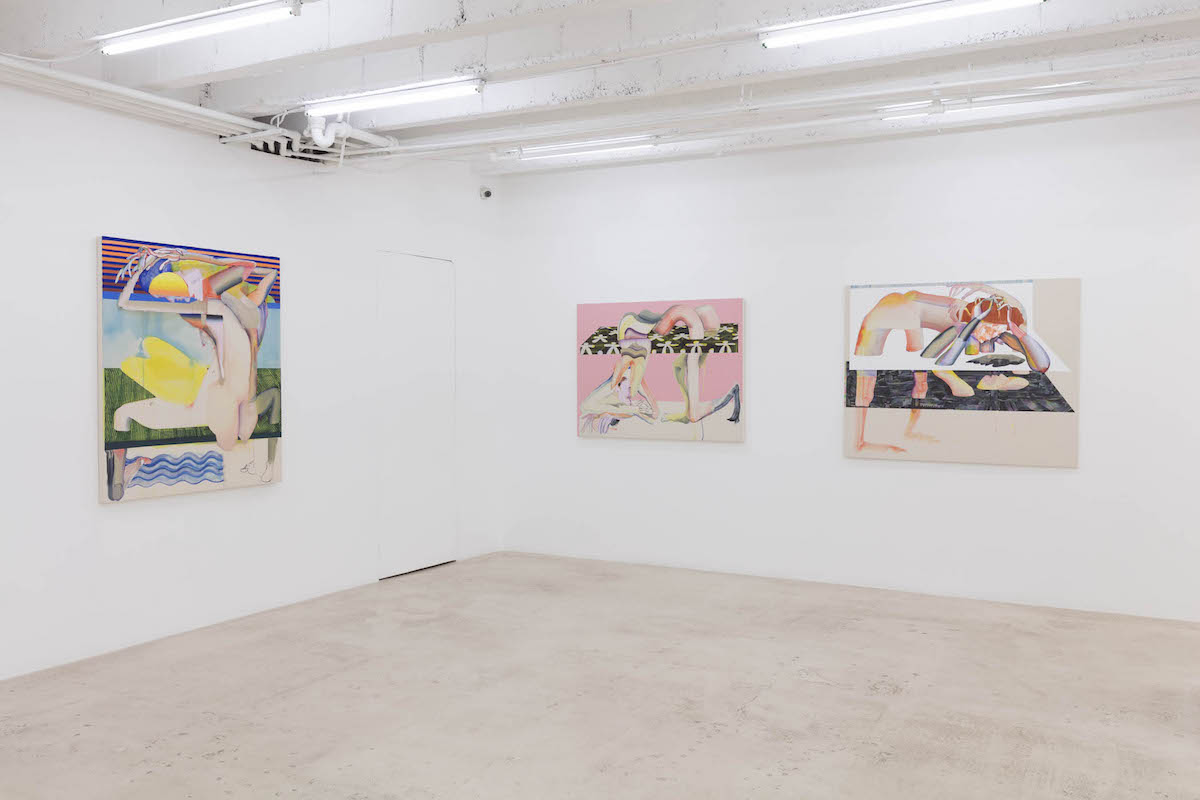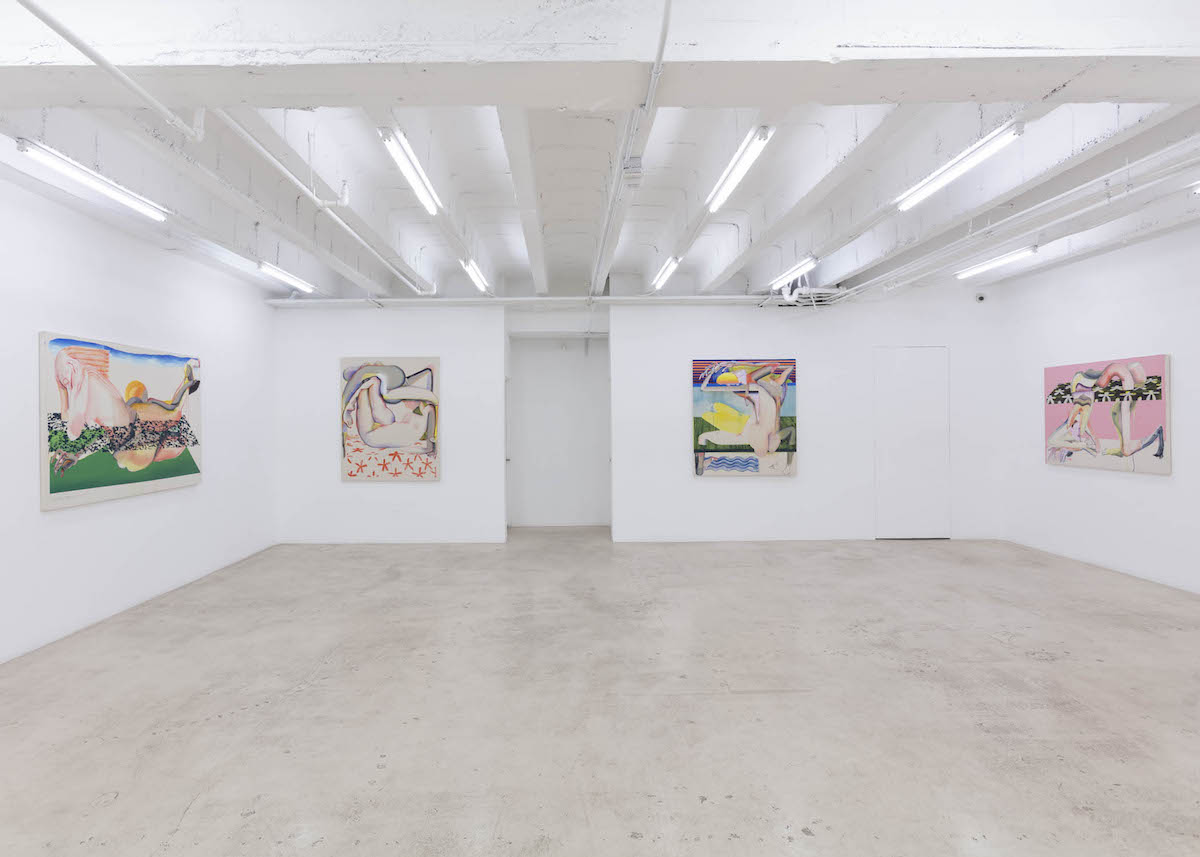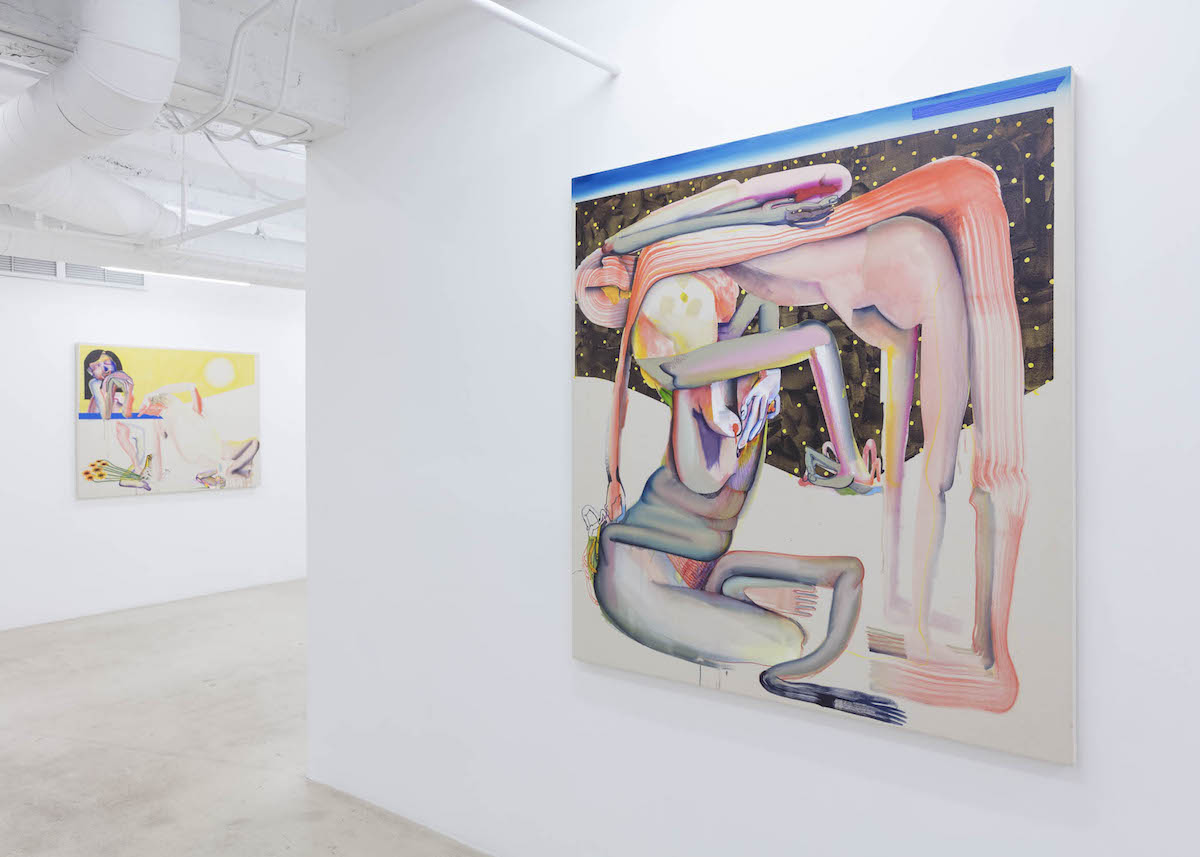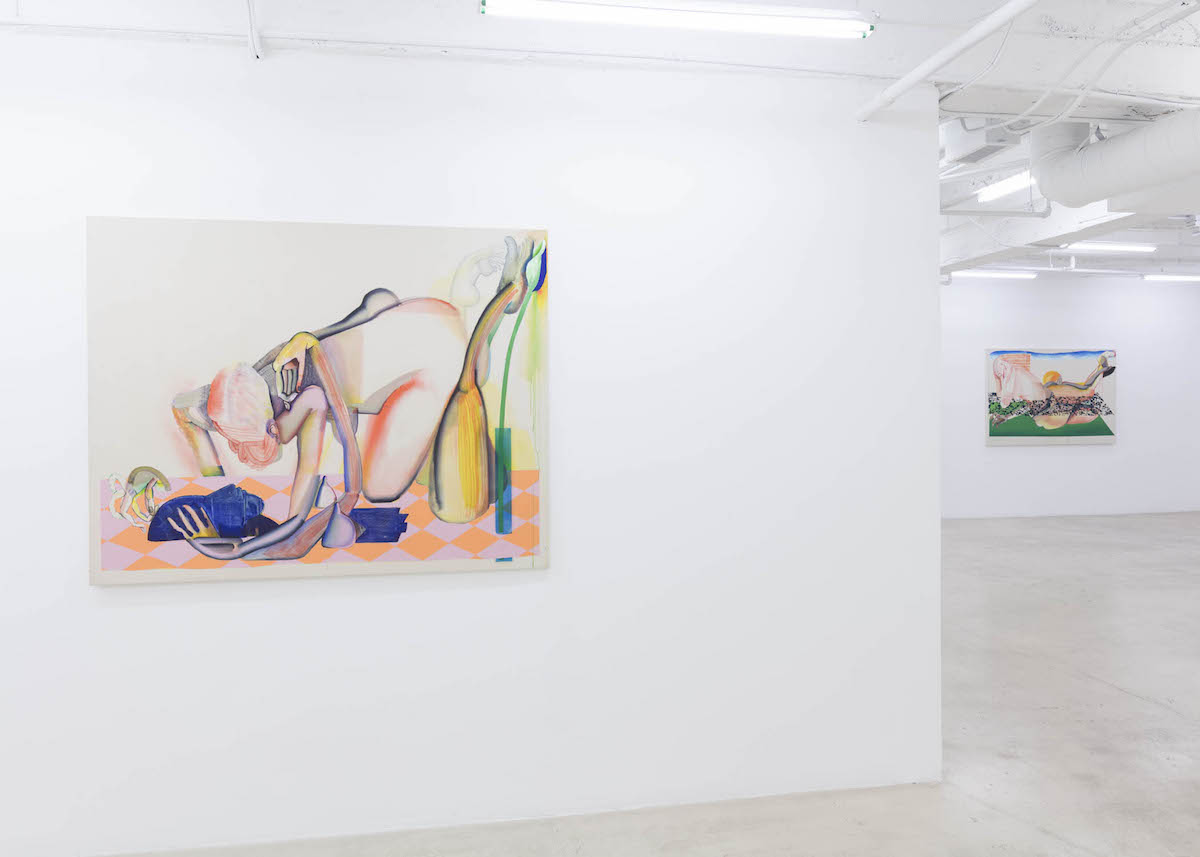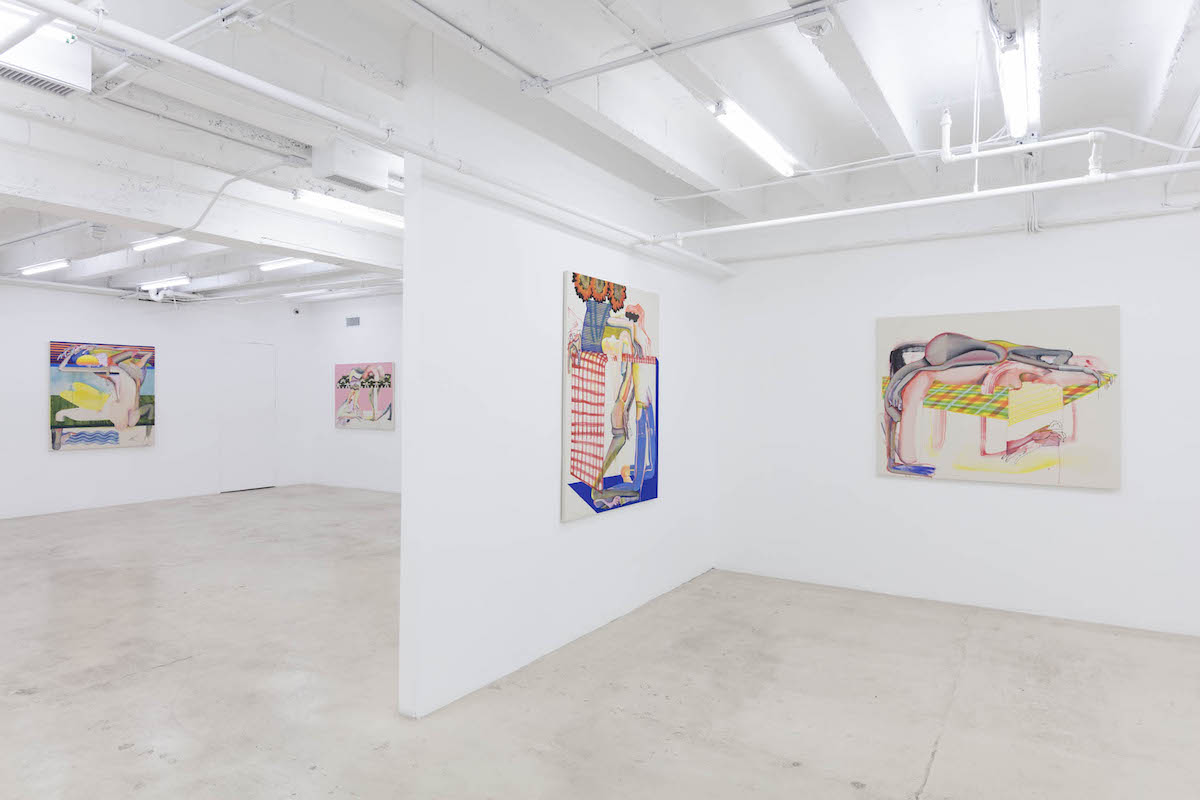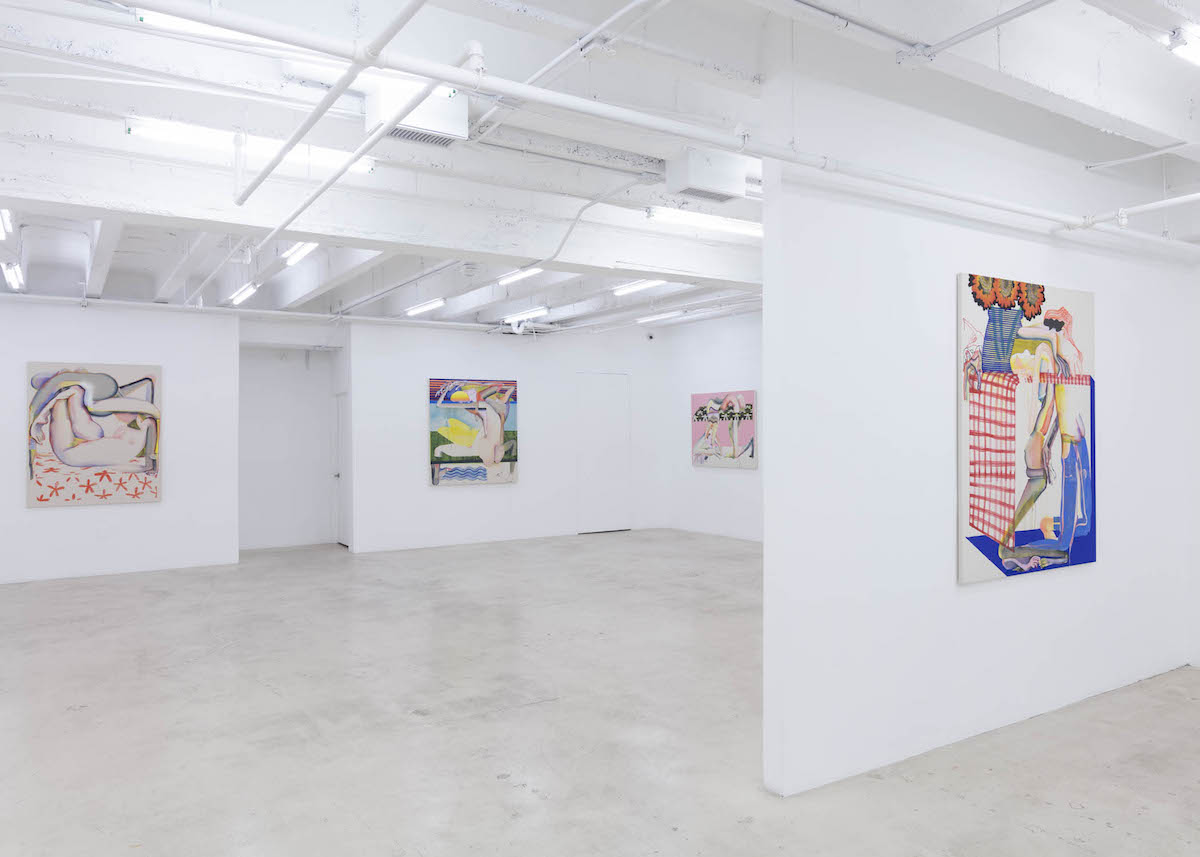Baby, I Want Yew To Know All Tha Folks I Am
Christina Quarles
David Castillo Gallery is proud to present Baby, I Want Yew To Know All Tha Folks I Am, a solo exhibition of new paintings by Christina Quarles.
Baby, I Want Yew To Know All Tha Folks I Am questions the boundaries of the body, its limitations and possibilities. Treating materiality as a transgression upon potential, the bodies of Quarles’ subjects—themselves wholly or partially formed—visually melt between each other and their environments. Flesh billows and drapes in uncertain terms, upending the familiar territories of the human form. And limbs grasp, embrace and overlap one another in undefined material symbioses between partnered bodies. The virtuosic ambiguity of these figures is an exercise in untethering the body from the staid traditions of representation, challenging pictorial norms both past and present. Quarles’ paintings are, in many ways, a collective metaphor for the promise of inhabiting a body, adapting its physicality to the wavering desires and urgencies of human behavior.
The Foucauldian impulse of the docile, or disciplined, body is a concept premised on the very tempering of human activity by enclosing the physical self within a given environment—ranging anywhere from the home to the prison. The values of a space impose themselves upon individuals and draw them towards obedience, conditioning and designating the body—and the self by extension—as a tool towards that system’s self-propagation. The malleable bodies of Quarles’ work, however, resist these impositions. Evading the confines of determinate space and form, Quarles’ subjects are resolutely disobedient in the ambiguity of their representation, circumventing the specificity of space as an apparatus that might define or constrain them.
In (Oh, I Fergot, It’s Summertime) Sunday, Ninth of July (2017), a contemplative figure is bisected by a blue plane, as if sinking into the ground or floating above the sky. Existing liminally between here and there, the body’s materiality is brought into question as it slips between dimension. The ground of Yer Tha Sun in my Mourning Babe (2017) similarly rises to meet its subject, who lounges on, and is caught between, a green floor, a floating texture, and a blue sky above. The uncertainty of these figures, and their relationship to these environments, is only heightened by the ambivalence of these spatial elements: the often-decorated planes of color and pattern that suggest anything from ceilings to floors, tabletops and beds. Anchored in these quasi-interior spaces, the domestic and the everyday play out as undecidable vignettes of indeterminate subject, narrative and form. Each scene can be partly interpreted by its viewer from the few artifacts that bear familiar resemblance to reality, but discernable meaning in this effect remains fleeting.
The language of Quarles’ work itself, represented in their titles, is similarly caught between slang and phonetic interpretation, disregarding words’ familiar spellings in favor of tongue-in-cheek versions that border on text-speak. The exhibition’s title similarly hinges on this orthographic flippancy, with the added function of thrusting the artist—herself and her modes of representation—within the works; the title suggests that Quarles’ subjects contain her and correspond to the diverging needs, affectations and impulses she holds within. These works bring together a general irreverence towards proper form in its myriad configurations, sidestepping the many rules—both man-made and natural—that order humanity. Baby, I Want Yew To Know All Tha Folks I Am is an exercise in invention, where Quarles imagines new grammars, power structures and physics between which the body—even her own—can slip.
Christina Quarles was born in Chicago, IL and raised, lives and works in Los Angeles, CA. She received an MFA from the Yale School of Art in 2016, and holds a BA from Hampshire College. Quarles was a 2016 participant at the Skowhegan School for Painting and Sculpture. Current museum group exhibitions are Trigger: Gender as a Tool and as a Weapon (New Museum, New York, NY), and Fictions (The Studio Museum, New York, NY); recent exhibitions include Reconstitution (LAXArt, Los Angeles, CA). Quarles’ upcoming museum solo exhibition is MATRIX, Berkeley Art Museum, CA (Fall 2018), among others. Exhibitions opening concurrently with her solo exhibition at the gallery in December 2017 are Still Human, Rubell Family Collection, Miami and Abstract/Not Abstract, Gagosian Gallery, organized by Deitch Projects, Miami Design District.
The artist’s work has received recent critical praise in The New Yorker (Oct 9 & Oct 16, 2017), The New York Times, New York Magazine (Sept 21 & Oct 23, 2017), The Village Voice, Hyperallergic, Architectural Digest India, Paper Magazine, among numerous other publications.
Peter Schjeldahl writes in the October 9th, 2017 issue of The New Yorker, “The happiest surprise in Trigger is a trend in painting that takes inspiration from ideas of indeterminate sexuality for revived formal invention…Christina Quarles…rhymes ambiguous imagery of gyrating bodies with dynamics of disparate pictorial techniques…The wholes and parts of bodies in Quarles’s cheerfully orgiastic pictures entangle in alternating styles of line, stroke, stain, and smear…called to mind early nineteen-forties Arshile Gorky and Willem de Kooning, who fractured Picassoesque figuration on the way to physically engaging abstraction… Quarles playing that process in reverse, adapting abstract aesthetics to carnal representation. Whether intentionally or not…effectively return to an old well that suddenly yields fresh water. Styles fade into history when they use up their originating impulses. New motives may snap them back to vitality, albeit, here, to sophisticated rather than disruptive effect.”
Jerry Saltz writes in the October 23rd, 2017 issue of New York Magazine, “Christina Quarles makes a splash here with tightly composed, kaleidoscopically colored figurative painting.”
Christina Quarles
